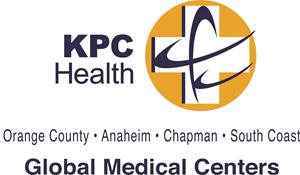
The problems include ‘a legal shield’ enjoyed by nonprofit hospitals, and the solutions include more retrospective analysis of close calls, says Rebecca Kelly Slaughter.
KEY TAKEAWAYS
The FTC is prohibited from enforcing antitrust laws against nonprofits, which poses a challenge, Slaughter said.
The commission should conduct another round of retrospective study on closed healthcare mergers, she said.
Commissioners should be ‘as aggressive as possible’ moving forward to preserve healthcare competition, she added.
Federal Trade Commissioner Rebecca Kelly Slaughter told a liberal think tank Tuesday that antitrust regulators should take a more assertive approach to protect competitive forces among healthcare providers.
Slaughter, a Democrat appointed to the FTC by President Trump and confirmed last year, made the remarks in a speech at the Center for American Progress in Washington, D.C., where she took issue with what she described as “a legal shield for anticompetitive conduct” at nonprofit hospitals.
The FTC is allowed to review all hospital mergers, but it cannot enforce antitrust laws against nonprofits, including more than 45% of U.S. hospitals, she said.
“So, for example, if a non-profit hospital merger itself is not anticompetitive, but the newly merged entity engages in anticompetitive practices, the FTC is stuck on the sidelines,” Slaughter said in her prepared remarks.
“In effect, this means that all of the healthcare industry expertise that the FTC has worked for decades to, and continues to, develop cannot be deployed alongside the DOJ and state enforcers to stop anticompetitive practices by roughly half of all hospitals nationwide,” she added. “This is a significant lost opportunity.”
Slaughter called for greater scrutiny of horizontal and vertical mergers alike both in the future and in the past.
“I believe that the FTC should conduct a new round of retrospectives of healthcare provider mergers,” Slaughter said.
Studying the past has led the FTC to some of its biggest improvements in understanding market forces, as was the case with former Chairman Timothy J. Muris’ retrospective analysis of hospital mergers in the early 2000s, Slaughter said.
Moving forward, Slaughter said, the FTC should take another look at recently cleared “close-call hospital mergers” and those that were shielded from antitrust scrutiny by state laws despite posing significant concerns. This is consistent, she said, with a statement the FTC issued last fall when it decided not to challenge a proposed affiliation involving CareGroup Inc., Lahey Health System Inc., Seacoast Regional Health System, and others.
The FTC should also consider taking another look at vertical integration among healthcare providers, such as transactions involving hospitals and physician groups, she said.
“[W]e should be as aggressive as possible in challenging the mergers we encounter today, especially where the proposed consolidation involves new structural arrangements rather than traditional horizontal concerns,” Slaughter added. “It is important for parties considering mergers to know we will not shy away from challenging, for example, anticompetitive vertical organizations.”
“I am sensitive to the concern that we might lose litigation,” she added, “but our obligation is to identify the right outcome and fight for it.”










